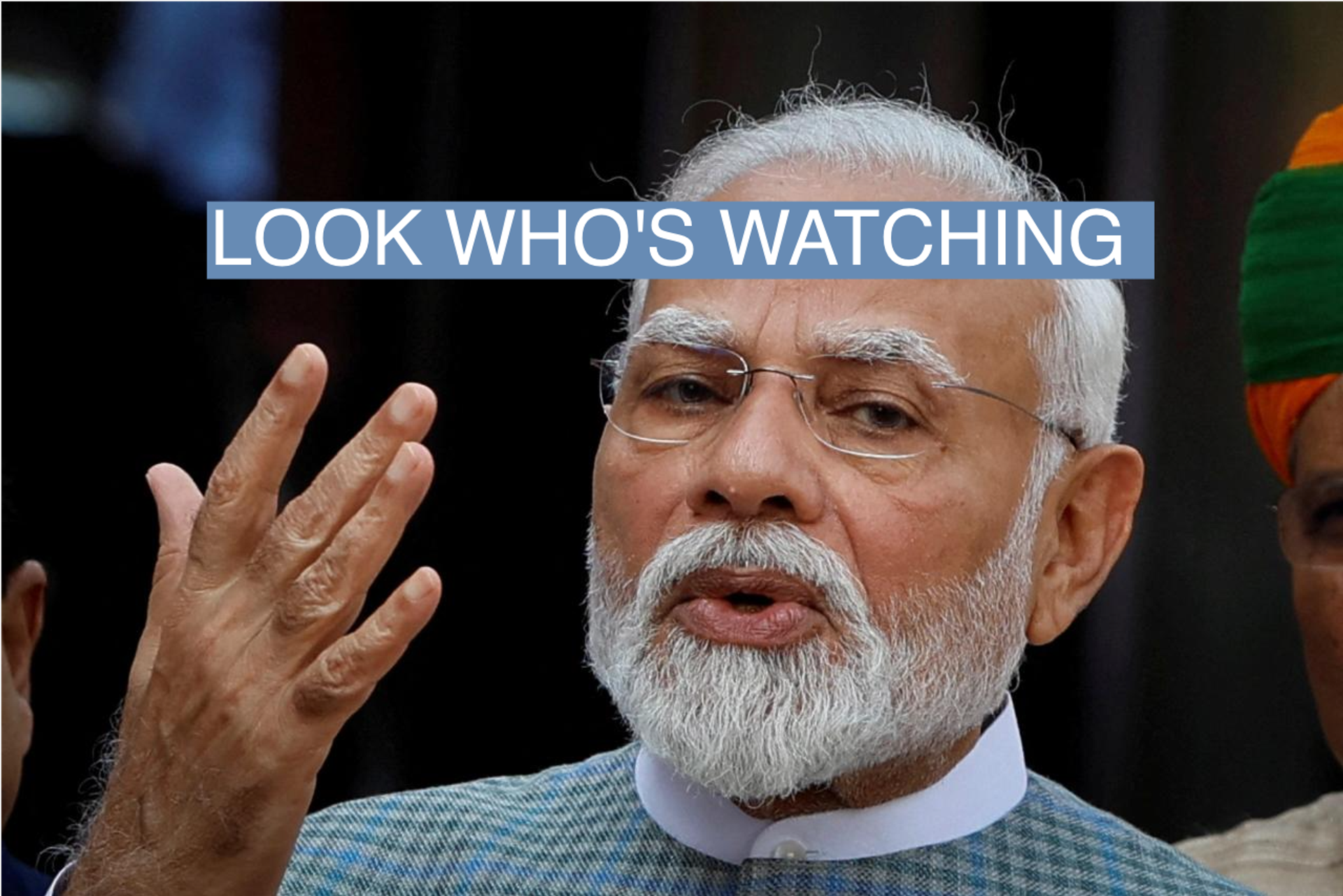SIGNALS
Opposition leaders framed the Apple notifications as a sign of the ruling government’s intimidation tactics ahead of the 2024 general elections in India. “This is clearly a sign of panic,” said Rahul Gandhi, India’s opposition leader. Mahua Moitra, a prominent opposition lawmaker, said the BJP had a history of “peeping Tom behavior” and was trying to “distract from the main issues” facing the country. Raghav Chadha, another lawmaker who was notified, alleged that the “snooping” was part of “the broader attacks on the opposition who are facing relentless repression by investigatory agencies, politically motivated criminal cases and incarceration.”
Opposition leaders and government critics said the spyware notifications were reminiscent of the 2021 Pegasus spyware allegations, which, as one Indian news outlet, said “far outstrip Nixon’s Watergate scandal.” In that scandal, the devices of more than two dozen politicians, activists, and journalists were reportedly infiltrated using the Israeli-developed spyware, with the maker of Pegasus saying that it only provides the software to “vetted governments.” The Modi government at the time refused to cooperate with a Supreme Court investigation into the matter, saying that those blasting the BJP for the alleged attack are people who “do not like India to progress.”
Political intimidation tactics in India go beyond spyware. Journalist Swati Chaturvedi — one of the reported victims in the Pegasus attack — recounted in 2021 how she was the target of organized digital troll attacks in the years leading up to her phone being hacked. She detailed how online accounts would compare her to a prostitute and discuss her “rates” whenever she was critical of the BJP in her coverage. “As an investigative journalist, the only way I could retaliate against this daily, horrific abuse was to investigate it,” Chaturvedi wrote in Haaretz at the time, with her years-long investigation ultimately exposing how the BJP “used troll farms to shut up critics.”

